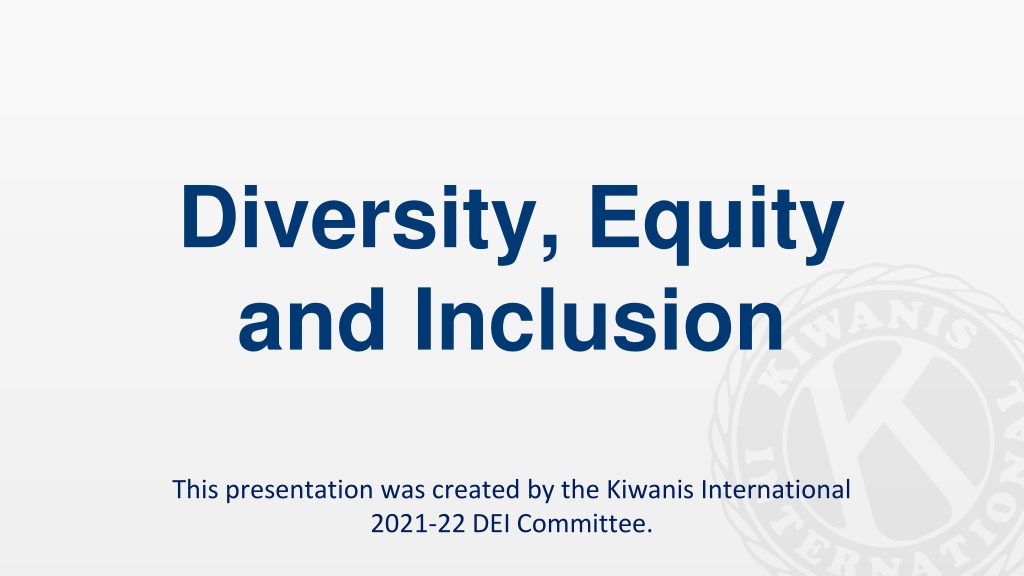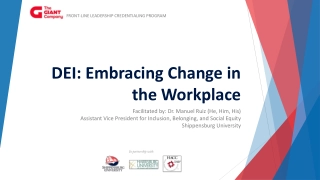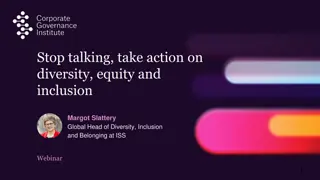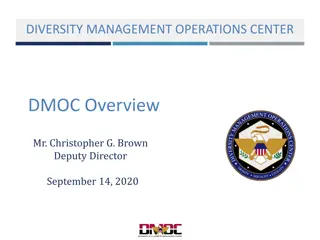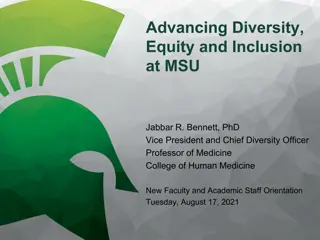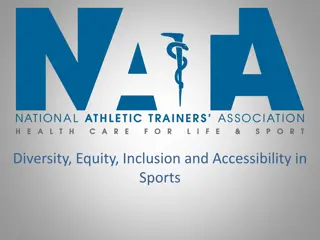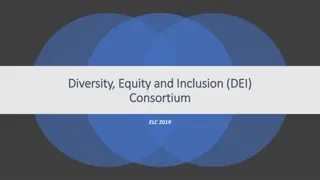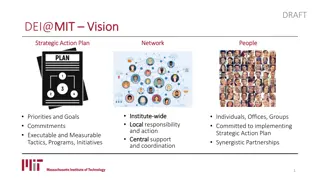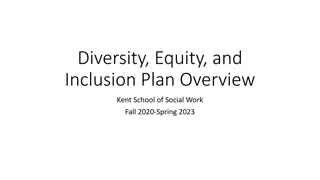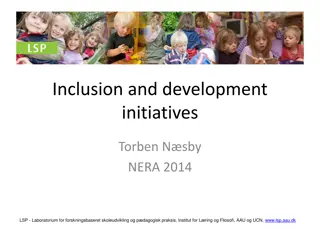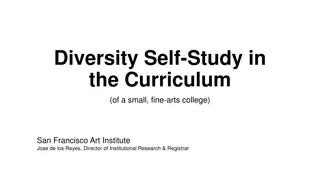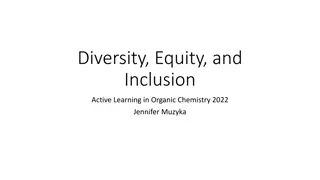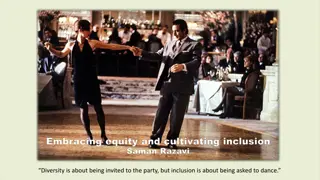Diversity, Equity and Inclusion
Explore diversity, equity, and inclusion through examples and resources for a healthy Kiwanis club. Guidelines promote active listening and respect for all identities. No blame, hidden agendas, or political stances. Kiwanis commitment to DEI highlighted.
Download Presentation

Please find below an Image/Link to download the presentation.
The content on the website is provided AS IS for your information and personal use only. It may not be sold, licensed, or shared on other websites without obtaining consent from the author.If you encounter any issues during the download, it is possible that the publisher has removed the file from their server.
You are allowed to download the files provided on this website for personal or commercial use, subject to the condition that they are used lawfully. All files are the property of their respective owners.
The content on the website is provided AS IS for your information and personal use only. It may not be sold, licensed, or shared on other websites without obtaining consent from the author.
E N D
Presentation Transcript
Diversity, Equity and Inclusion This presentation was created by the Kiwanis International 2021-22 DEI Committee.
Not everything that is faced can be changed, but nothing can be changed until it is faced. -James Baldwin
Educational objectives 1. To define, describe and explore examples of diversity, equity and inclusion. 2. To apply these examples to a healthy Kiwanis club experience. 3. To provide resources for further exploration on the topics of diversity, equity and inclusion.
Community guidelines You may feel uncomfortable discussing some of the topics. That s OK. Be an active listener. Avoid making assumptions about other people s identities. What is shared here stays here, and what is learned here leaves here.
Not on todays agenda Blaming or shaming. Forcing a hidden agenda on you. Taking a political stance.
Commitment to DEI* Kiwanis clubs shall not discriminate based upon race, color, creed, national origin, age or sex, including sexual orientation and gender identity, when considering membership or during any of their activities or operations and shall conduct business in compliance with local nondiscrimination laws. *Diversity, Equity and Inclusion Source: Kiwanis International Bylaws, Article VIII, Section 10
Committee on DEI Vanessa McClary, Chair Indiana District Tsuyoshi Nakai Japan District Amanda Brown Illinois-Eastern Iowa District David Olinger Kentucky-Tennessee District Celia Earle Florida District Gina Roberts California-Nevada- Hawaii District Michael Hipple Wisconsin-Upper Michigan District Shawn Smith Pennsylvania District John Holley Georgia District Sandra Stocz-Fenton Ohio District Maura Magni Italy-San Marino District Angela Evans Kiwanis Staff Liaison Bobby Moo Young Eastern Canada and Caribbean District
Definition: Diversity Diversity is expressed in myriad forms, including race and ethnicity, gender and gender identity, sexual orientation, socioeconomic status, language, culture, national origin, religious commitments, age, (dis)ability status and political perspective. Source: University of Michigan, https://diversity.umich.edu/about/defining-dei/
Definition: Equity Equity is the fair treatment, access, opportunity and advancement for all people, while at the same time striving to identify and eliminate barriers that prevent the full participation of some groups. Source: University of Washington, https://environment.uw.edu/about/diversity-equity- inclusion/tools-and-additional-resources/glossary-dei-concepts/
Definition: Equity O Source: Original graphic from Interaction Institute for Social Change | Artist: Angus Maguire. interactioninstitute.org and madewithangus.com.
Definition: Inclusion Inclusion is building a community (club) where differences are welcomed, different perspectives are respectfully heard and every individual feels a sense of belonging. Source: University of Michigan, https://diversity.umich.edu/about/defining-dei/
Definition: The dance Diversity is when everyone is invited to the party. Equity means that everyone gets to contribute to the playlist. Inclusion means that everyone has the opportunity to dance.
Survey results Do you believe diversity, equity and inclusion are topics for our organization to discuss? Yes 78.44% No 14.08% Unsure 7.48%
Did you know Average age of a Kiwanis member: 60. Average age of a new Kiwanis member: 48. Percentage of male members: 68%. Percentage of female members: 32%. What does this tell you about a typical Kiwanian as it relates to DEI?
Looking forward Kiwanis needs to stay relevant in today s communities for today s youth.
Todays youth: Are achievement and service oriented. Want to make a positive impact. Are very aware of their community and how they can be social mavericks. Don t read newspapers. Are drawn to sustainable products and brands that change to remain relevant. Are very aware of DEI.
Survey results Which of the following have made you feel unwelcome, unsafe, unheard or not empowered as a member of Kiwanis? Check all that apply.
Taking a closer look Politics inserted into meetings. Favoritism. Sexist, ageist, racist, discriminatory or inappropriate jokes. Denominational prayer. New ideas not considered. Lack of flexibility with meeting times or service project scheduling.
What does that tell you about diversity, equity and inclusion and Kiwanis?
Diversity: Kiwanis Club Source: W.W. Norton & Company
Equity: Kiwanis Club Source: W.W. Norton & Company
Inclusion: Kiwanis Club Source: W.W. Norton & Company
Resources for your club: 1. Understanding unconscious bias. 2. Short video and discussion series. 3. Work with CKI and Key Club to have discussion groups about DEI.
Resources for your club: The Privilege Walk activity (facilitated)
Questions? Email: diversity@kiwanis.org
